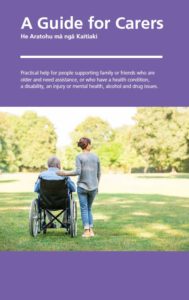The World Health Organisation called for an end to ageism to mark International Day of Older Persons. The description of ageism is worth reading:
“Ageism is everywhere, yet it is the most socially “normalized” of any prejudice, and is not widely countered – like racism or sexism. It exists when the media portrays all old people as “frail” and “dependent”. It influences (subconsciously or actively) the policy maker to opt for cost containment in preference to making appropriate adaptations and investment in infrastructure and services for ageing societies…”
“Older people who feel they are a burden may also perceive their lives to be less valuable, putting them at risk of depression and social isolation. Research shows that older adults with negative attitudes about ageing may live 7.5 years less than those with positive attitudes.”
 Age Concern’s Dr Judith Davey talks of “age-phobia”, where older people are referred to and talked about as “an additional burden to the traditional scourges of poverty and disease”!? Our language betrays a lot about what we are thinking.
Age Concern’s Dr Judith Davey talks of “age-phobia”, where older people are referred to and talked about as “an additional burden to the traditional scourges of poverty and disease”!? Our language betrays a lot about what we are thinking.
Meanwhile Minister for Senior Citizens Hon Maggie Barry marked the day by urging all New Zealanders to recognise “the important role seniors have in our society and treating them with the respect and dignity they deserve”. She also released an updated version of the booklet “A Guide for Carers“. Unfortunately, the booklet does not cover the issue of ageism, although it does contain a range of useful information to help those who find themselves in the situation of caring for someone with an age-related disability or other support needs.
